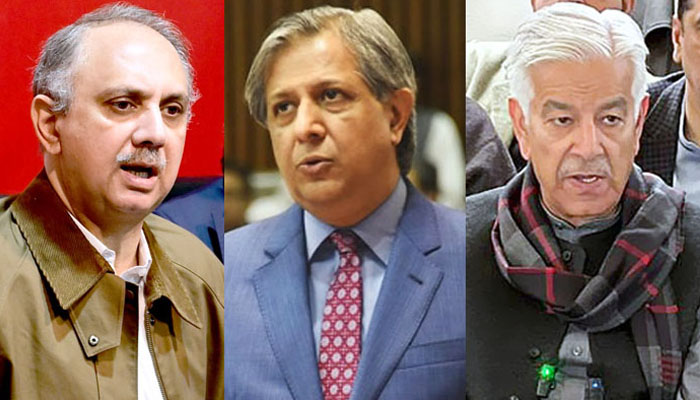

The government Tuesday defended its move to authorise the Inter-Services Intelligence (ISI) to intercept or trace calls, with the opposition Pakistan Tehreek-e-Insaf (PTI) crying foul saying the incumbent rulers would face a backlash for granting such powers to the country’s premier intelligence agency under the "black law".
Responding to a question raised by the Leader of the Opposition in the National Assembly Omar Ayub Khan, Minister for Law and Justice Azam Nazeer Tarar told the House that it was not a new law rather it came into force in 1996 and further reshaped section 54 of the Pakistan Telecommunication re-organisation Act 1996.
He quoted section 54 of the Act which states, “Notwithstanding anything contained in any law for the time being in force, in the interest of national security or in the apprehension of any offence, the Federal Government may authorise any person or persons to intercept calls and messages or to trace calls through any telecommunication system”.
Tarar said that the government from time to time issued notifications in this regard. Many incidents like the assassination of Benazir Bhutto and DIG Mobeen took place and culprits involved in such heinous crimes were nabbed through calls interception by intelligence agencies under the said law.
Speaking on the floor of the House, Ayub said that the government has issued an SRO empowering the intelligence agency to trace and intercept calls and messages.
"Those empowering [agencies] to trace calls will go to jail," he stressed, adding that PPP and PML-N leaders including Asif Ali Zardari, Nawaz Sharif, Shehbaz Sharif, will end up in jail under the same law.
Responding to the criticism of the Opposition Leader, Defence Minister Khawaja Asif said the matter of phone tapping is undergoing a legal process. However, he dubbed phone-tapping essential in matters of national security, saying it is imperative in view of the ongoing counter-terrorism operations against militants.
"I will support phone-tapping in the prevalent situation," the defence minister said, calling on Ayub and other PTI leaders to review
their party founder's previous statements on the issue.
Asif said the PTI founder in the past had backed the phone-tapping citing security concerns.
Speaking outside Parliament House, PTI Chairman Gohar Ali Khan denounced the government's move, saying the Constitution of Pakistan is quite clear about eavesdropping. "The Constitution's intent is that no one's privacy is affected and no one is allowed to tap phone calls," he added.
— With additional input from APP












